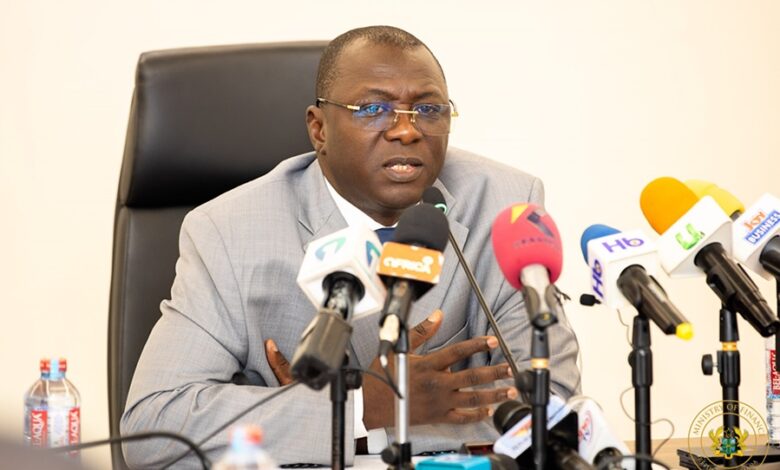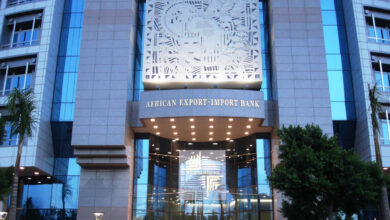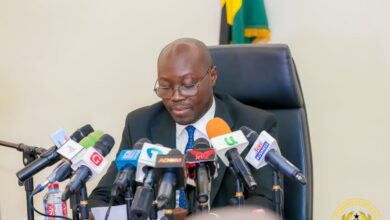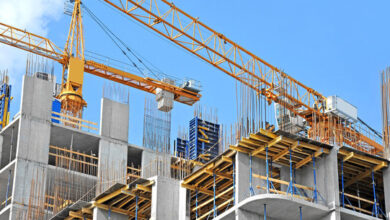Ghana gets IMF’s seal of approval for sterling performance

Ghana’s economy is on a remarkable recovery trajectory, marked by strong growth, macroeconomic stability, and a resurgence in investor confidence.
The recent positive review by the International Monetary Fund (IMF) serves as a testament to the country’s improving economic fundamentals, as the government continues to implement bold policies and structural reforms.
The IMF, in its statement following the third review of Ghana’s $3 billion bailout program, lauded the country’s progress, noting that “Ghana’s policy and reform efforts under the IMF-supported programme have continued to deliver encouraging results.”
Speaking at a monthly economic update in Accra, the Minister of Finance, Dr. Mohammed Amin Adam, emphasized the significance of this achievement. He highlighted that meeting all six Quantitative Performance Criteria and all four Indicative Targets for June 2024 is a first in Ghana’s history under an IMF program.
Economic Growth Surges
Ghana’s economy recorded a robust real GDP growth of 6.9% in Q2 2024, up from 4.7% in Q1, and 3.8% in Q4 2023. This rebound, driven by strong performances in the industrial, agricultural, and ICT sectors, resulted in an average growth rate of 5.8% for the first half of 2024 — the highest in five years.
The Bank of Ghana’s Composite Index of Economic Activity (CIEA) also indicated a sustained growth momentum, with a 2.8% expansion in Q3 2024, a significant turnaround from the contraction of 2.4% in the same period in 2023.
Restoring Macroeconomic Stability
Key indicators point to an improving economic environment:
- Inflation: Trending downward after reaching unsustainable levels in previous years.
- Exchange Rate Stability: The Ghanaian cedi has stabilized, gaining strength against major currencies.
- Reserves: Gross International Reserves increased to $7.7 billion (3.5 months of import cover) by October 2024, up from $5.2 billion (2.4 months) in October 2023.
Dr. Amin Adam attributed this stability to disciplined fiscal management, effective debt restructuring, and strategic economic policies. “For the first time in an election year, we have maintained fiscal discipline while undertaking massive infrastructure projects across the country,” he stated.
Debt Restructuring and Fiscal Discipline
Ghana’s successful completion of its domestic and external debt restructuring program has been pivotal in restoring fiscal health. The restructuring efforts, coupled with timely negotiations under the IMF program, have positioned Ghana as a model for economic recovery in challenging times.
Building Investor Confidence
The government’s commitment to structural reforms has reignited investor confidence, with foreign direct investment inflows and trade accounts surpassing expectations. “The strong recovery of the Ghanaian economy reflects the resilience and collective efforts of Ghanaians,” Dr. Amin Adam remarked, emphasizing that the reforms are not just about stabilization but creating sustainable growth paths.
Challenges Ahead
Despite these gains, challenges remain. Dr. Amin Adam acknowledged the need for sustained efforts to reduce inflation further, enhance revenue mobilization, and consolidate fiscal gains. The government is keen on leveraging technological advancements and improving the ease of doing business to attract more investments.
A Bright Economic Outlook
The IMF’s endorsement, coupled with Ghana’s strong economic data, underscores the country’s turnaround story. With GDP growth nearing pre-pandemic levels and structural reforms firmly in place, Ghana is poised to emerge as a beacon of economic recovery in Africa.
As Ghana builds on this momentum, its focus on resilience and inclusivity will be crucial in ensuring that the gains translate into improved livelihoods and opportunities for its citizens.




